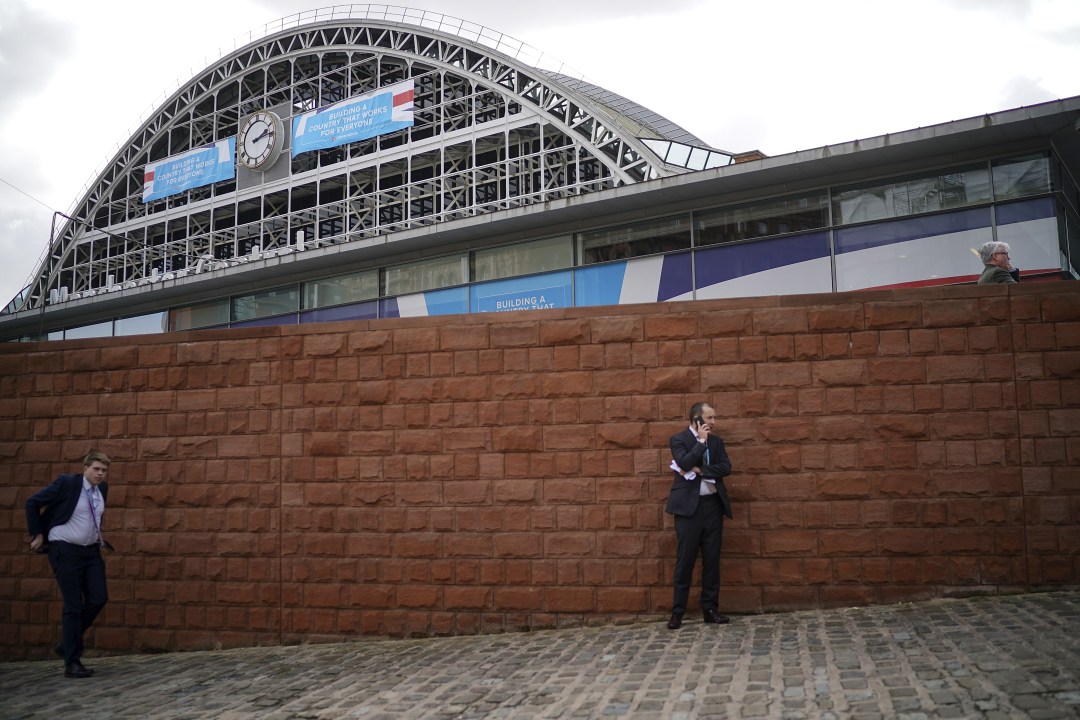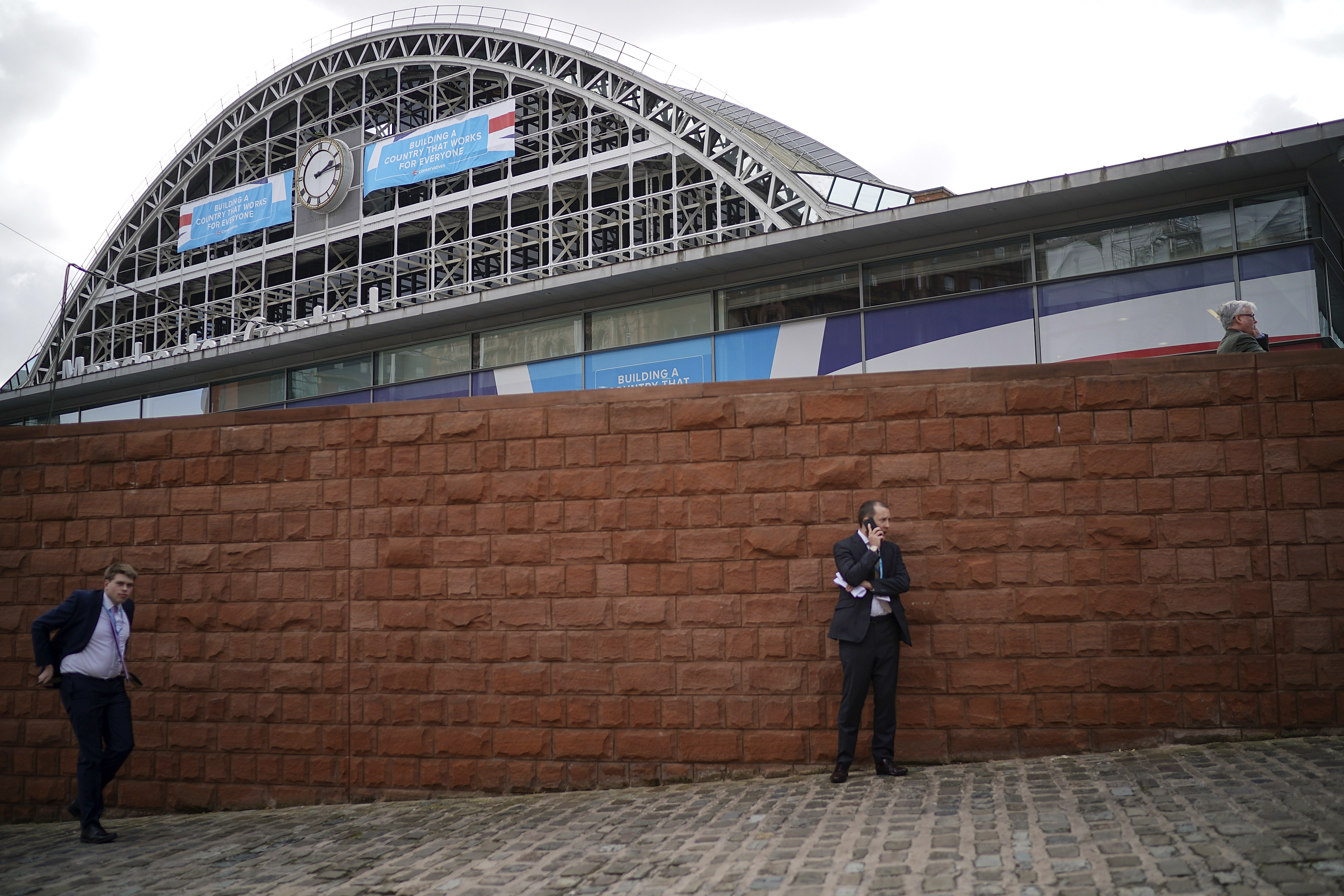Tory conference is yawning on with neither furious fights nor much evidence that anyone knows how to fix the party’s problems. The most energetic bit of it so far has been Theresa May’s round of media interviews this morning, in which the Prime Minister appeared to have been turned on to 1.5x speed as she nervously gabbled her answers and tried to sound happy. Other spots of colour come from non-MPs, such as Ruth Davidson. The hall isn’t packed, the atmosphere flat, and members and MPs look bewildered and miserable.
The Tories are starting to resemble Labour at the end of its last spell in government. The party was exhausted. It was aware that it needed to find new ways of talking to voters, but didn’t know what they were and was too tired really to work them out, so it spewed out random ideas that it often didn’t follow up. Vultures in the form of MPs who thought they could do better than their grey, unhappy leader were circling.
The big difference, of course, is that the Tories have only been in government for seven years, and only two of those have been in a majority Conservative administration. Labour was in power for nearly twice as long as that before it developed such exhaustion.
How have the Conservatives declined so quickly? Former Tory leader Iain Duncan Smith thinks it is precisely because they have spent so little time in government on their own: ‘Working in Coalition sapped all the ideas. It was about endless compromise and it allowed David Cameron to avoid the Right of the party, which is where all the ideas come from.’ Others just feel it is inevitable for the party to seem exhausted at the moment given the shock and grief caused by the snap election result, but that the regeneration of the party will happen after it has managed to survive this conference season. ‘We’ve just got to get through it,’ is the mantra that Tory MPs now recite to one another.
The problem is that Labour is no longer giving the Tories the free pass they could previously rely on in times of trouble. Jeremy Corbyn’s party was happy to the point of being hallucinogenic last week in Brighton – but more than that, it was fizzing with ideas about what it wanted to do in government, which it feels closer to and more entitled to than the party that’s actually in office. The Conservatives can say quite passionately that these ideas from Corbyn and John McDonnell are dangerous – but it has no ideas of its own to suggest it is a good alternative.
And just surviving the conference season does not automatically put the party on an upward trajectory. Aside from Boris Johnson, the Cabinet is relatively quiet, but it is also full of people who are deeply unhappy with the way Theresa May and her aides are handling things, and deeply worried about their party’s future.
The last time Manchester hosted a conference this muted was Labour’s 2014 event, at which the Shadow Cabinet said very little at all, even though they seemed to be months away from government. They weren’t quiet because they were just so focused on preparing for being in power, or because Manchester Central as a venue does soak up excitement like a sponge. They were quiet because they were deeply – and rightly – worried about the prospects for their party.
Can Theresa May change the narrative of a failing government with a nervous leader? Her big speech tomorrow needs to show that she has more fuel in the tank than the Labour government did as it ground towards its demise. Her MPs who want her to stay in place still want a sense that she is in charge and that she has a vision for domestic policy that is worth pursuing alongside Brexit. So far none of the announcements at conference have suggested that this is the case, so unless May has stolen all the exciting ideas and locked them in her hotel cupboard until she gives her speech, the Conservative Party is in desperate need of regeneration.
Parties in this state can see Opposition as a relief, a chance to work out what they believe and how they need to adapt. But it is possible for a party to have its Doctor Who moment when in power: the Tories managed this under Thatcher when people initially appeared sick of her and convinced that her economic ideas weren’t working. And they managed it again under John Major, who won the 1992 election after catastrophic rows on the poll tax which ended Margaret Thatcher’s premiership.
Theresa May is famous for warning the Tories that they were seen as the ‘Nasty Party’. There are still MPs who haven’t forgiven her for attaching that tag to their brand. But what will be more unforgivable is if she is the leader who doesn’t deal with the party’s current, much more damaging affliction, which is not so much that it’s the Nasty Party as it is that it is now the Knackered Party.








Comments